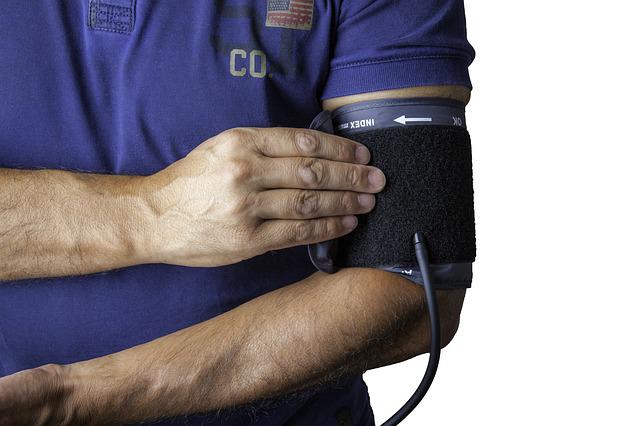Tips For Coping With A Life-Threatening Illness
Being diagnosed with a life-threatening illness can be a daunting revelation. It can feel like you’ve been put under a time constraint, with merely a few moments of happiness left. However, no matter how bleak the situation may seem, there can always be an end in sight.
Science has come a long way and continues to make breakthroughs in treatments for disease management. The better you cope with your illness, the greater your chances of recovering and improving the quality of your remaining life.
However, it can be challenging to figure out what to do when it feels like the clock is ticking away. You may experience a roller-coaster of emotions, each more overwhelming than the previous. If you’re looking for a way to make things easier, try these tips to help you cope.
Get All The Information You Can About Your Illness
One of the biggest problems people face after being diagnosed with a life-threatening illness is the lack of information. A diagnosis creates much more confusion than it should, and patients often feel lost when comprehending what this means for them.
You might not fully understand how your life will be affected, how much time you have, or how you can fund your recovery. Most of all, you might want answers about how your disease occurred in the first place.

The only solution to all this is getting in touch with the right resources and finding your options. Don’t hesitate to ask your doctor any questions that might bother you. Suppose you’re a retired military officer diagnosed with a time-sensitive and fatal illness such as mesothelioma.
In that case, you might want to ask your doctor about treatment plans and info on veterans centers. A mesothelioma veterans center can provide you with crucial information regarding treatment and financial assistance necessary to care for your condition.
Moreover, they can offer a lot of assistance in helping you understand your illness and can connect you with other survivors too. So always seek more information whenever you can.
Keep Your Family Around You
Being diagnosed with a life-threatening illness can make you feel as if everything has been turned upside down, and you might experience a lot of emotional distress. In such a challenging time, you might not feel like being around anyone, even your loved ones.
You might feel like your family members can’t understand what you’re going through, or you might not want to burden them with yourself anymore.
However, dealing with your emotional distress positively is imperative to your recovery. Without emotional support from your family, you can go into a deeply negative state that can be detrimental to your recovery.
Your loved ones can keep you anchored during this difficult time and be there when you feel low. They can provide a lot of support, such as taking you to doctor’s appointments, keeping up with your medication, and watching over your health.
Lead A Healthier Lifestyle
It may seem useless to change your lifestyle when you’ve already been diagnosed with a dangerous illness, but it’s never too late to bring about a positive change, and this can be beneficial for you.
Continuing unhealthy habits such as smoking, drinking, and overeating can worsen your condition and make it harder for you to recover, especially if you’re undergoing treatment.

When switching to a healthier lifestyle, there’s not much you need to do. Good eating habits can strengthen your muscles, immune system, and body.
Consuming nutrient-dense foods can give your body the energy to withstand the treatment. Superfoods such as yogurt, nuts, berries, and leafy greens can help your body fight off disease and free radicals. Additionally, staying active can keep your energy levels up and reduce stress. So exercise a bit.
Keep Yourself Distracted
When dealing with an illness, the last thing you want to do is hyper-fixate on it. It can be hard to think of anything else, but these thoughts will do you more harm than good.
Stress is one of the biggest risk factors that complicate recovery and can make it much harder for you to heal as it suppresses your immune system. Instead, keeping yourself occupied is one of the best ways to keep stress at bay.
This is a good time to do something that brings you joy. Be it something as simple as reading or painting, playing sports, or making music, you need to take time to do what you love.
You might want to pick up a hobby you’ve been neglecting, connect with your community, or just spend time with nature. You can also pen down your experiences, which can be incredibly cathartic.
Listen To Your Doctor
You might receive varying advice from all corners after diagnosis and during treatment. While this advice is often well-intentioned, it can include more misinformation than valuable information.
Your neighbors or work friends may not have detailed information on your medical history, so what worked for someone in their circles may not work for you.

In such cases, it’s best always to give precedence to a medical opinion and run everything through your doctor.
Your doctor can help you decide which treatment protocols will be the best for you and can help you plan. Even if you want to change something in your routines, such as your meal or exercise plan, it’s always best to run the idea by your doctor. Doing so can save you from harming your health.
Conclusion
Being diagnosed with a life-threatening illness such as cancer is not the end of all things. You can get on your path to recovery by implementing a few positive changes to your life.
Be sure to collect more information on your illness and consult a doctor for healthy lifestyle changes you’ll need to make. Having your loved ones around you will be beneficial in such testing times.
Read Also:
- Top Ten Online Therapy Platforms
- 7 Essential Health Tests and Screenings to Be Done Every Year
- Road To Recovery: 8 Tips For A Healthier You After Illness Or Injury



